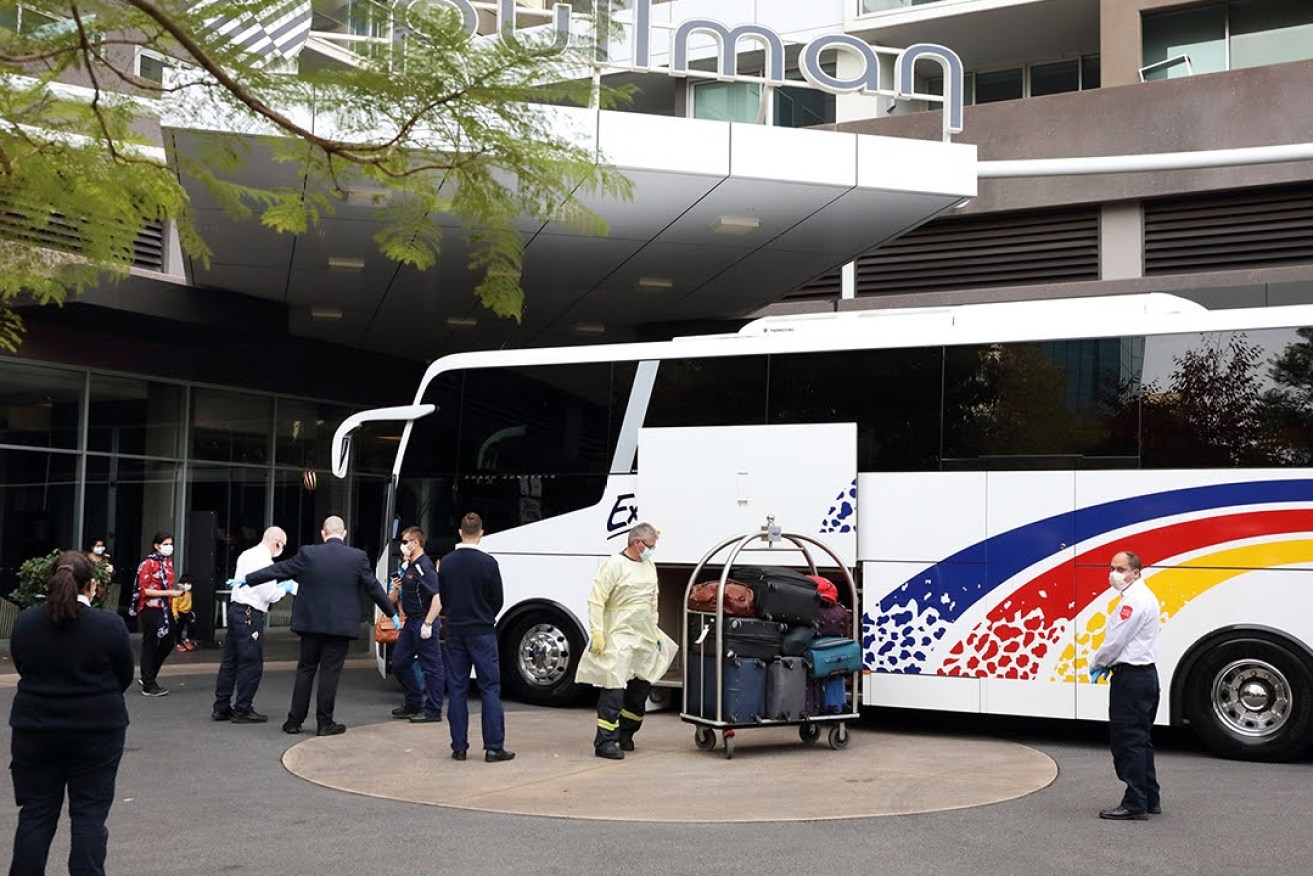SA’s hotel quarantine bill still $12 million short
The state government is still chasing more than $12 million in unpaid bills from people who were quarantined in Adelaide medi-hotels during the height of the COVID-19 pandemic.

The Pullman Hotel was one of Adelaide's largest and longest-running medi-hotels during the height of the COVID pandemic. Photo: Tony Lewis/InDaily
Health Minister Chris Picton told InDaily: “It’s clear much of this quarantine debt may never be recovered”.
All up, travellers racked up $53.99 million in hotel quarantine bills after the state government started charging for their stays midway through 2020.
At June 30, the government had recouped $40.99 million, but it was still chasing $12.72 million in outstanding invoices, some of which may be under a payment arrangement.
A further $290,000 of debt was written-off by the government for reasons including financial hardship.
The data was tabled in parliament last week in response to questions lodged by Liberal MLC Stephen Wade, who oversaw the establishment and operation of the hotel quarantine while he was Health Minister under the former Marshall Government.
During the early stages of the pandemic, taxpayers spent in the order of $120 million covering the cost of quarantining travellers, infectious COVID-19 patients and their close contacts in eight hotel quarantine facilities across Adelaide.
But in July 2020, then Premier Steven Marshall announced the government would start charging Australians returning from overseas, saying they had been given “plenty of time” to make their way back after the country shut its international borders.
Individuals were charged $3000 each, with an extra $1000 for another adult from the same family, plus $500 per child aged over three.
Picton said there was “no doubt that significant unpaid debts were incurred under the previous Liberal Government”.
“These will be followed by the standard processes but it’s clear much of this quarantine debt may never be recovered,” he said.
SA Health data shows the cost of running the medi-hotel program – including airport travel, room accommodation, baggage handlers, clinical support, CCTV monitoring, food, housekeeping, security and waste removal – was $1.8 million in 2019-20 and $116.2 million in 2020-21.
“During the COVID-19 pandemic, South Australia played a key role in facilitating the repatriation of Australian citizens and permanent residents from overseas,” a SA Health spokesperson said.
“A range of payment options, including payment plans, were put in place for people quarantining in a medi-hotel, in order to minimise financial barriers for people to safely return to Australia.”
Government debt collection protocols are now in place to recover the $12.72 million in outstanding invoices.
Hotel quarantine was touted as one of the state’s key defences against COVID-19 during the early days of the pandemic, but a shift towards home-based isolation and the relaxation of travel requirements meant demand gradually dried up.
Earlier this year, the Playford Hotel, Stamford Plaza and Hotel Grand Chancellor transitioned from medi-hotels back to tourist accommodation, joining other former quarantine hotels including Peppers Waymouth and Ibis Adelaide.
One of the largest and longest-running medi-hotels in Adelaide – the Pullman Hotel on Hindmarsh Square – closed in April this year.
At the time, SA Health told InDaily close to 13,000 people quarantined at the hotel since it opened in April 2020.
The New South Wales Government in June reported it was still chasing almost $60 million in unpaid hotel quarantine bills.
It said the state’s residents owed about $32.1 million, while people from interstate – mostly Victoria and Queensland – and overseas owed $26.5 million.
The eastern state bore the brunt of repatriating most Australians returning from overseas during the height of the COVID-19 pandemic.




